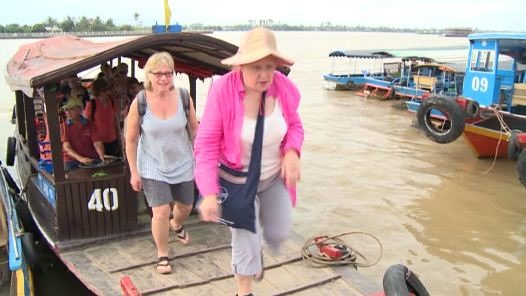 Economy
Economy

Provinces and cities in the Southern Key Economic Region should strengthen their linkages to enable the region to capitalise on its development potential, a seminar heard in HCM City yesterday.
 |
| Provinces and cities in the Southern Key Economic Region should strengthen their linkages to enable the region to capitalise on its development potential, a seminar heard in HCM City yesterday. — Photo thst.vn |
HCM CITY — Provinces and cities in the Southern Key Economic Region should strengthen their linkages to enable the region to capitalise on its development potential, a seminar heard in HCM City yesterday.
Ngô Đông Hải, deputy head of the Party Central Committee’s Commission for Economics, said “each locality is an independent financial body but assigned common targets such as ensuring growth in the economy, production and foreign investment, improving residents’ lives and others.”
This will mean overall development trumps local interests, he said.
Specific legal framework needed
Prof Dr Mai Hồng Quỳ, principal of the HCM City University of Law, said to enable the region to develop as it expects, the Government needs to have a specific legal framework for the region with specific policies related to land use and investment attraction.
She and many others urged the Government to increase localities’ share of tax and other revenues to enable them to reinvest and develop.
The Government should allow the region to establish two finance companies to mobilise funds for its development, they said.
They also said the region should focus on improving training to supply to the market qualified workers meeting international standards.
Nguyễn Đình Trung, deputy director of Bà Rịa-Vũng Tàu Department of Planning and Investment, said the member localities should jointly suggest ways to the Government and relevant agencies to complete land, waterway, railway and air travel infrastructure in the region.
Đinh La Thăng, Secretary of the HCM City Party Committee, said a regional data centre should be established to make it easy for the region to research and support foreign investors.
In the long run, the Government should have suitable policies for developing the region into an open economic zone, he said.
It needs to adopt policies to strongly develop localities with great potential to create a momentum for others with less potential, Phong said.
China has such a policy, he added. — VNS




